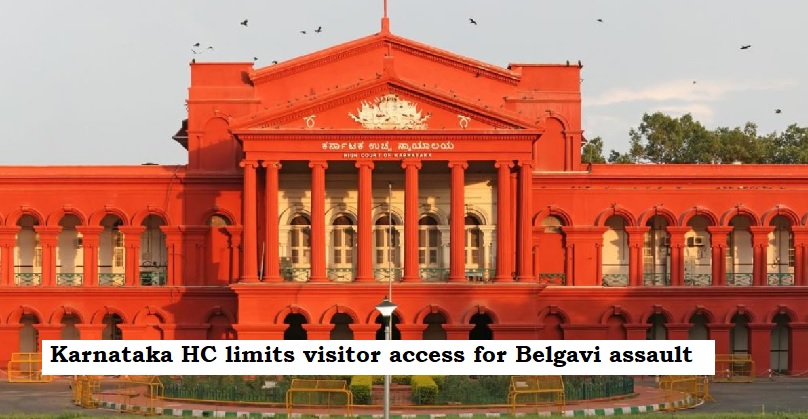


The Karnataka High Court has imposed restrictions on individuals, groups, associations, political parties, or any similar entities from visiting the residence of a lady who was reportedly subjected to physical assault, stripped, and tied to an electricity pole in Belgavi. These events unfolded after her son allegedly eloped with another girl.
In an effort to ensure the victim's undisturbed medical treatment, the court has explicitly prohibited unauthorized individuals from visiting her unless granted prior written permission by the medical officer in charge of the hospital or the attending doctor. The directives were issued by a division bench comprising Chief Justice Prasanna B Varale and Justice Krishna S Dixit during the hearing of a suo-motu plea.
The court's intervention came after Chief Justice Varale came across a news clip on "Times Now" that highlighted the planned visits to the victim by representatives of the National Human Rights Commission and a political party delegation. In response to the urgency of the situation, the bench addressed the matter in chambers and decided to restrict visitors in the best interest of the victim's well-being and to safeguard her uninterrupted medical treatment.
Expressing the need to provide counsel to the victim, who was undergoing medical treatment, the court, under normal circumstances, would refrain from limiting the freedom of movement for any citizen. However, considering the severe trauma experienced by the victim and the ongoing medical treatment, the court concluded that a constant influx of visitors could potentially compromise her health and disrupt the medical proceedings.
It was clarified by the court that the order should not hinder family members of the victim, official representatives of statutory authorities/commissions, or investigating agencies from visiting the victim in a need-based manner. The intention is to strike a balance between ensuring the victim's privacy and well-being while allowing relevant individuals to attend to her needs.
The court's decision underscores the delicate nature of the situation, emphasizing the paramount importance of the victim's recovery and the seamless continuation of medical treatment. By limiting unregulated visits, the court aims to shield the victim from additional distress and maintain a conducive environment for her healing process.
In outlining these restrictions, the Karnataka High Court is actively addressing the complexities arising from the alleged assault, acknowledging the potential impact of public access on the victim's health. The court's measured approach seeks to uphold the principles of justice and humanity in the face of a distressing incident, emphasizing the need for sensitivity and respect for the victim's rights during this challenging time.
TAGS: Family Members Statutory Authorities Investigating Agencies Privacy Balance Recovery Sensitivity.